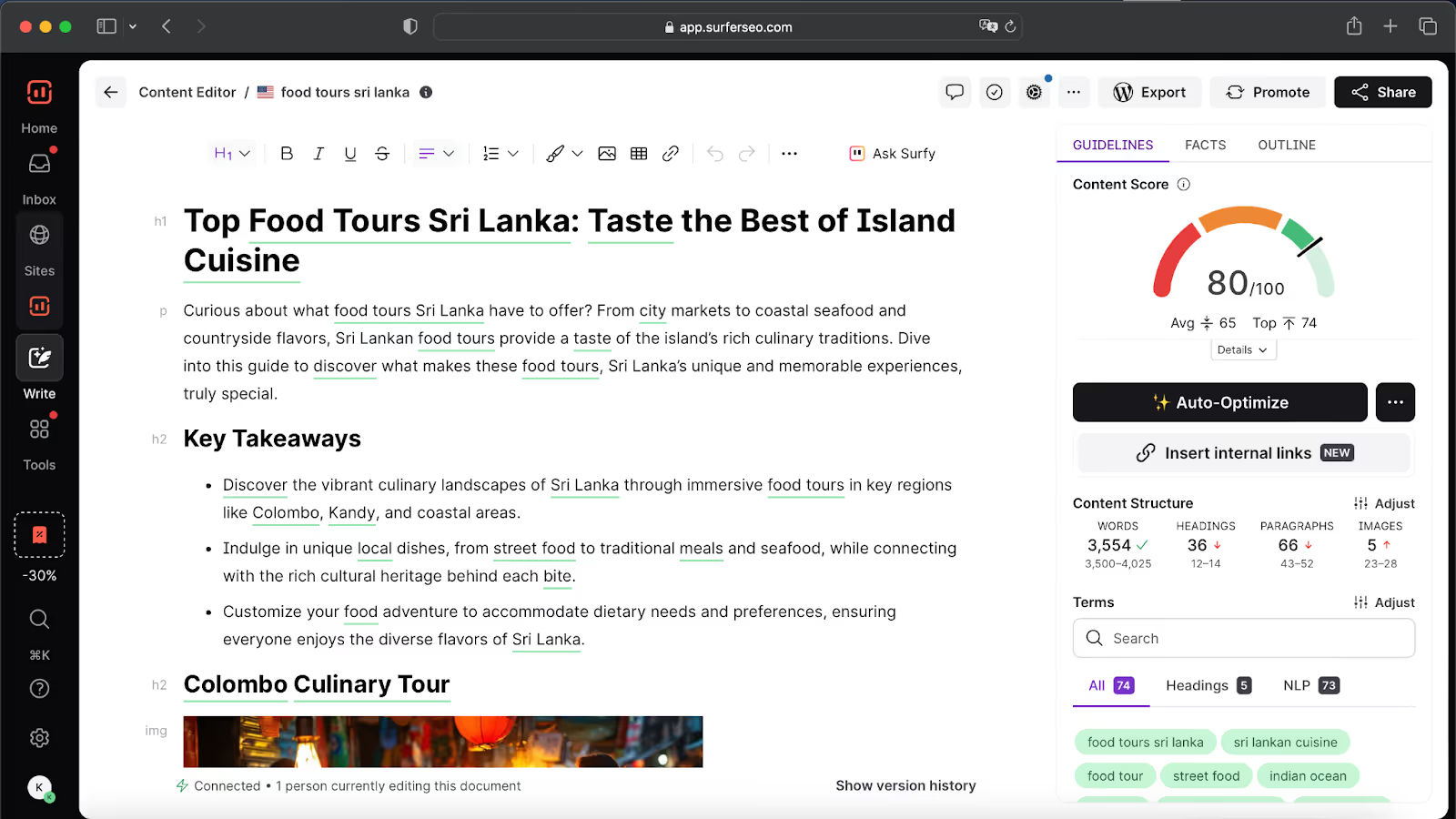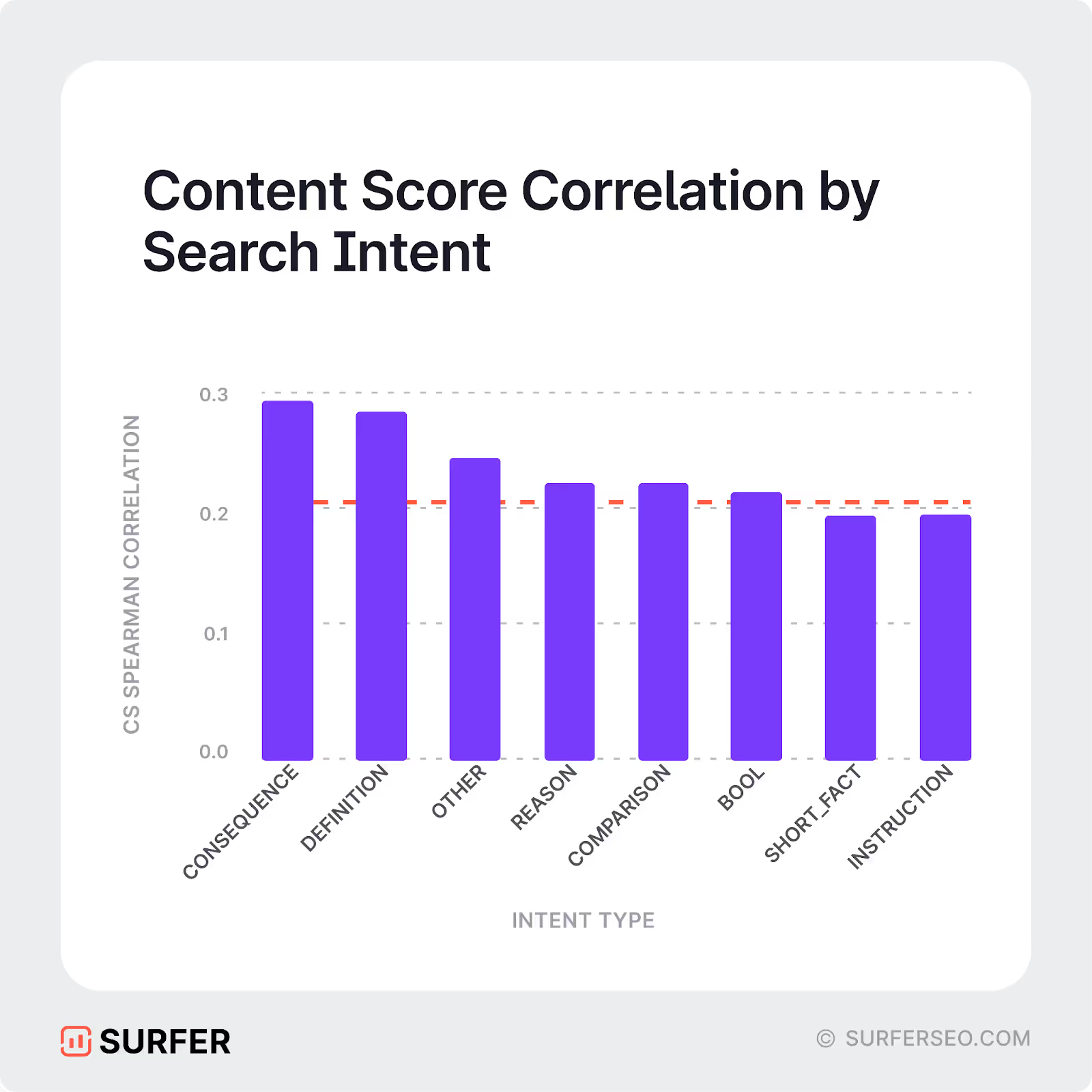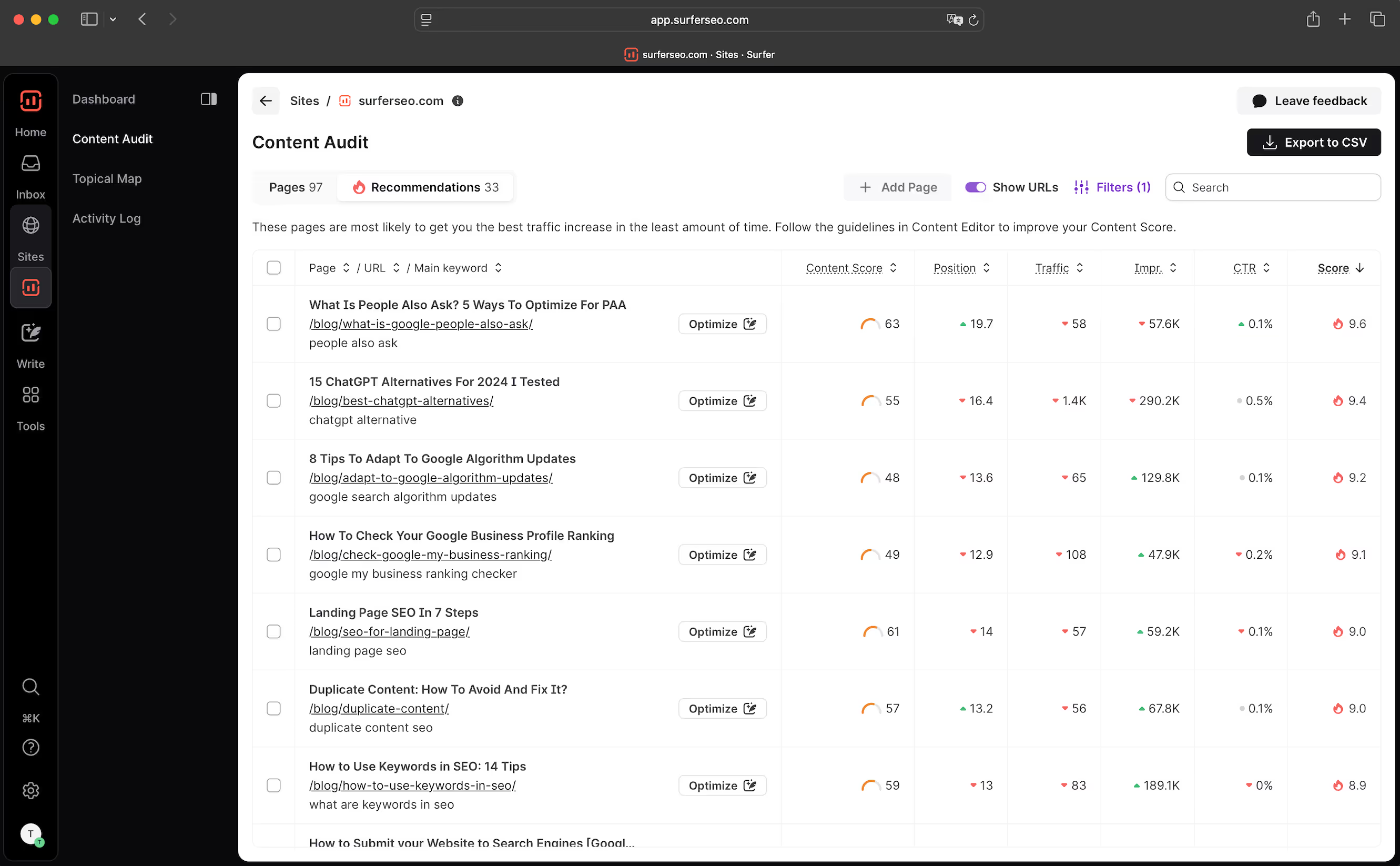Short answer? Yes. And in 2025, that matters more than ever.
With AI-generated content flooding the web, Google is doubling down on content quality signals to decide who ranks and who doesn’t.
If you want to compete, you need a reliable way to measure and improve the quality of your content.
That’s what Surfer’s Content Score (CS) is designed for. But how well does it actually work today?
Here’s what a 1-million-SERP-entry study reveals.
How Surfer’s Content Score measures content quality
First, let's briefly dive into how the Content Score works.
Surfer’s Content Score gives you a real-time quality benchmark, based on what’s actually ranking in Google right now.
It assigns a score from 0 to 100, showing how well your content stacks up against top-performing competitors for your target keyword.
That score reflects the core elements of content quality that influence rankings:
- Topical coverage: Are you answering the right questions and addressing the subtopics that matter?
- Keyword usage: Are you naturally including the terms and phrases Google expects to see?
- Structure and readability: Is your content easy to navigate, scan, and understand?
- Depth and relevance: Are you providing real value, not just surface-level content?
You’ll find Content Score embedded in tools like Content Editor and Content Audit, helping you optimize both new and existing pages.

Simply put, the Content Score helps you create high-quality content that ranks. Not just more content, but better content.
How we test Surfer’s Content Score impact on rankings
To test how well Surfer’s Content Score predicts rankings in 2025, our data scientist Maciej ran a large-scale SEO study:
- 10,000 search queries across industries and intents
- Top 100 organic results for each query
- 1,000,000 SERP entries analyzed, not just page one
This isn’t a one-off experiment. We continuously run large-scale tests like this to track how Content Score aligns with real-world rankings.
Why take this broad approach?
Most SEO studies only look at page one winners. But this broader view lets us isolate how much content quality alone influences rankings, regardless of authority or backlinks.
In other words, it shows how well Content Score predicts success across the entire SERP.
Maciej uses Spearman correlation to measure how Content Score relates to Google rankings.
This method looks at how closely two rankings move together—in this case, Content Score vs. SERP position.
Correlation values range from:
- +1 = Perfect positive correlation (higher CS always means higher rankings)
- 0 = No correlation (CS doesn’t relate to rankings at all)
- -1 = Perfect negative correlation (higher CS equals lower rankings—not good)
Here’s what the data showed:
Finding 1: Content Score correlates at 0.28
Our data shows that Surfer’s Content Score correlates with Google rankings at 0.28.
In other words, pages ranking higher have, on average, higher Content Scores than pages ranking lower in SERPs.
For context, Ahrefs’ backlink study found that backlinks have an average of 0.17 correlation with rankings. Keep in mind that content is way easier and cheaper to influence.
That makes Content Score one of the strongest controllable signals when it comes to improving rankings.
Finding 2: Not all queries are equal. Search intent matters
Interestingly, when we broke CS correlation down by search intent, the results became even more insightful:

This shows that Google leans on content quality signals more heavily for complex, open-ended queries.
If the user is asking “why,” “what happens if,” or “what is,” Google’s ranking systems reward content that’s thorough, well-structured, and topically comprehensive.
For simple facts or how-to tasks? Google may prioritize brevity, snippets, or authority sites, making content optimization less influential but still helpful.
Takeaway: Outrank your competitors with smarter content optimization
With a 0.28 correlation across 1 million SERP entries, the data is clear: Surfer’s Content Score is one of the strongest levers for improving rankings in 2025.
But it’s not about chasing a perfect 100.
The smartest strategy is to outperform your competitors, not over-optimize.
For most content, aim for a Content Score between 70 and 85. That’s the sweet spot where you’re comprehensive enough to win, without bloating your article or forcing keywords.
Surfer’s tools are built to help you do exactly that:
- Use the Content Editor + Coverage Booster to find the subtopics you’re missing, especially for complex, open-ended queries, where our data shows Content Score matters most.
- Use Auto-Optimize to close gaps and improve structure instantly, no manual rewrites required.
- Use Content Audit to keep older content competitive by comparing it to the current SERP winners, not outdated benchmarks.

If you want to rank in today’s search landscape, this is your playbook:
Write smarter. Close the gaps. Outrank the competition.
Start optimizing with Surfer →
.avif)


